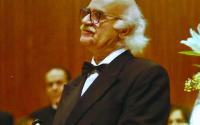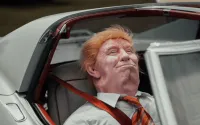The World Trade Organisation is a corrupted, coopted, captured institution, but all those who care about global justice should be fighting for its survival. Every time we shout that the WTO has got to go, we join hands with George Bush: he wants to destroy it because it impedes his plans for direct US control of other nations' economies.
In principle, the poor members of the WTO can and should outvote the rich ones. In practice, its democratic structure has been bypassed by the notorious "green room" meetings organised by the rich nations, by corporate lobbying and by the secret and unaccountable committees of the corporate lawyers it uses to resolve trade disputes.
All this must change, but it is now clear to me that to call for its destruction is like calling for the dissolution of a corrupt parliament in favour of the monarchy: it is to choose unilateralism over multilateralism. Our key task is not to overthrow the WTO, but to assist the poor nations to use it to overthrow the power of the rich.
In theory, the rules the WTO enforces are supposed to prevent protectionism by the rich nations while permitting a degree of protectionism by the poor ones. The principles behind this are sound. Most of the countries that are rich today developed with the help of "infant industry protection": defending new industries from foreign competition until they are big enough to compete on equal terms. The policy makes sense. Established industries have capital, experience and economies of scale on their side; infant industries in poor nations do not. Developing in direct competition with big business overseas is like learning to swim in a torrent: you will be swept away and drowned long before you acquire the necessary expertise. Rich countries, by contrast, have no need for protectionism, but by defending their markets against imports from poor nations, they prevent the transfer of wealth.
In practice, because of the way in which the rich members of the organisation have been able to subvert its processes and bully the poor ones, the WTO does precisely the opposite. The "special and differential treatment" it offers the poor nations is both utterly feeble and routinely blocked by the IMF and the World Bank, which insist that their clients drop all their protections in order to be eligible for loans. The "technology transfer" the WTO has long promised the poor has never materialised. The rich nations, by contrast, are permitted to protect their farmers, their textile producers and their steel millers, and to grant their companies ever greater rights over other people's intellectual property.
Instead we need a clear and non-negotiable sliding scale of trade privileges. The very poorest nations should be permitted, if they wish, to fully protect their infant industries, just as Britain did during the early days of the industrial revolution or the US between 1789 and 1913. As they become richer, they would be forced to gradually drop these protections. The very poorest countries should also be allowed free use of rich countries' intellectual property, for trade within their own borders and with other poor nations.
These measures, of course, are fair only in so much as they permit the development of economies and the transfer of wealth between nations. They do not deal with the other great source of injustice: the corporations' ability to force nations into destructive competition, abandoning the laws defending workers and the environment in order to attract their custom. Truly fair trade requires a further set of measures: corporations should not be allowed to trade between nations until they can show that they are meeting the standards set by the International Labour Organisation and the UN.
The WTO would therefore become a licensing authority, a bit like the health and safety executive in Britain. Like those participating in voluntary fair trade today, all corporations engaged in international trade would be obliged to employ monitoring companies, which would ensure rules were respected and report back to the WTO. Any corporation employing slaves or using lethal machinery, banning unions or tipping toxic waste into rivers would be forbidden from trading internationally. If we were to add the provision that all companies should pay the full environmental cost of the resources they use, we would possess a complete mechanism for ensuring only the nice guys survive.
None of this would be possible without a world trade organisation. In helping the poor majority to pursue this agenda, we can transform the WTO from a body that enforces unfairness into one that makes economic justice the principle by which the world is run.
· George Monbiot is the author of The Age of Consent: a manifesto for a new world order. www.monbiot.com






